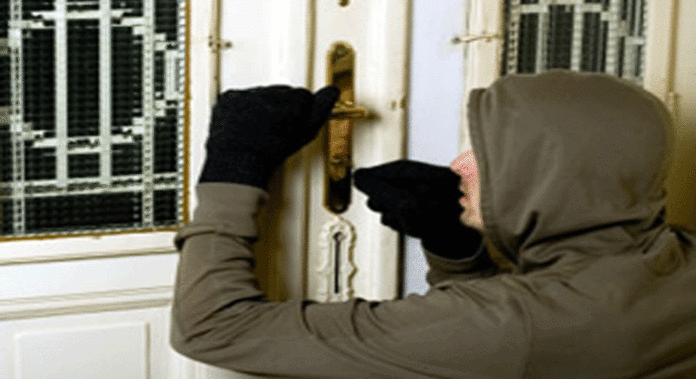
OVER HALF of the women surveyed said they felt unsafe in their home after a break-in.
Psychological impact far outweighs the practicalities, with reported consequences including sleep problems, becoming more nervous and anxiety about being home alone.
Almost one in ten homeowners bought a dog for protection following a burglary
Victims of burglary can be affected for years after the event, with women struggling the most, new research shows today.
More than half (56%) of the women surveyed who had been burgled said they felt unsafe in their home after the break-in, while 45% said it had affected their sleep and more than a third (34%) no longer wanted to be in the house alone. Men, on the other hand, were less distressed overall with two fifths (40%) confessing to feeling unsafe after a burglary, less than a third (32%) experiencing problems sleeping and only 13% feeling ill at ease on their own – almost a third less than women.
One in six women (17%) said they had become more nervous as a result of the burglary, with over a quarter (28%) admitting to becoming more likely to mistrust people they didn’t know.
Digging beneath the figures of the survey, some equally worrying details emerge. One woman refused to go on holiday for several years after a burglary because she was so anxious about leaving the house unoccupied, while another was left greatly distressed after finding a burglar’s footprint in her baby’s cot.
The findings emerged from a detailed survey conducted by Everest Home Improvements, which also found that being burgled leads many of us to change our habits almost immediately. The vast majority of homeowners (94%) said they had made changes as a result of the burglary, with around a third upgrading the locks on their doors (36%) and windows (28%), while more than half (51%) said they always double-check their windows are locked since the break-in. Almost one in ten homeowners bought a dog for protection following a burglary.
Overall the feelings people were left with following a burglary were considered worse than the practicalities of clearing up or replacing things, or even the fact that they were not able to replace sentimental items. Two thirds of women (67%) said the feeling of someone having been in their home was the worst thing about being burgled, while over half of men (52%) said it was having their privacy violated. Some people said they were so badly affected by the break-in that they had to move home.
TV psychologist Emma Kenny explains why it is often the psychological effects that have the most impact following a break-in: “The saying ‘home is where the heart is’ reflects the emotional connection that we feel when we think about the safe haven it provides. Having a space that is filled with our possessions and the people we love makes our home a unique and sacred territory, adding to our sense of personal wellbeing.
“Unfortunately, on occasion, this sense of security can be challenged due to things like burglary, with those affected often feeling that it impacts their overall wellbeing, which makes sense as suddenly a place that felt private and safe has been violated.”
Everest’s Marketing Director, Martin Troughton, said: “The survey results showed the real impact of burglary, which can have a long-lasting effect on our sense of security and wellbeing. It also highlighted that most of us could be more vigilant when it comes to home security. The distress caused by a burglary is not always considered until after a break-in has occurred, yet some simple steps taken earlier could prevent a lot of hassle and heartache later.
Ten top tips for beating the burglary blues:-
1. The first important step is to recognise that nearly everyone experiences a sense of vulnerability after a break-in and to be aware that this feeling will fade over time, so don’t rush into doing anything drastic like moving house.
2. Take back control – focus on the things you can do to make your home more secure. For instance, make sure your window and door locks are up to today’s standards, as there are much stronger options available nowadays and just knowing you’ve upgraded them will help you feel more secure.
3. Of course, fitting strong locks is the first step – but you have to make sure you use them too!
4. Use light sensors and timer lighting to make it look like people are home even when they’re not.
5. Crunchy gravel around the house is noisy when people walk on it so it will alert you if someone is outside and will act as a deterrent for anyone trying to gain access unannounced.
6. Plant spiky plants under windows such as berberis or holly bushes, which make it harder for intruders to gain access.
7. Don’t publicise details of your holidays or prized possessions on social media.
8. Disable the location option on your mobile phone so people can’t see where you are.
9. Dogs are a great deterrent – just having a ‘beware of the dog’ sign is likely to put potential burglars off your property.
10. Finally, remember to focus on the security at the back of your house as much as the front.








